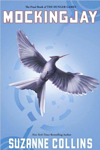
Search
Categories
Famous Authors
Top Selling Books

Book Home ![]() Books Information
Books Information ![]() Murray Leinster
Murray Leinster
Murray Leinster
Murray Leinster (June 16, 1896 - June 8, 1975) was the nom de plume of William Fitzgerald Jenkins, an American science fiction and alternative history writer.
He was born in Norfolk, Virginia. During World War I, he served with the Committee of Public Information and the United States Army (1917-1918). Following the war, Leinster became a free-lance writer. In 1921, he married Mary Mandola. They had four daughters. During World War II, he served in the Office of War Information. He won the Liberty Award in 1937 for "A Very Nice Family," the 1956 Hugo Award for Best Novelette for "Exploration Team," a retro-Hugo in 1996 for Best Novelette for "First Contact." Leinster was the Guest of Honor at the 21st Worldcon in 1963. In 1995, the Sidewise Award for Alternate History was established, named after Leinster's story "Sidewise in Time."
Jenkins wrote and published over 1,500 short stories and articles over the course of his carreer. He wrote 14 movies and hundreds of radio scripts and television plays, inspiring several series including "Land of the Giants" and "Time Tunnel".
He began appearing in the late 1920s in pulps like Weird Tales and then sold to Astounding in the 1930s on a regular basis. After World War II, when both his name and the pulps had achieved a wider acceptance, he would use either William Fitzgerald or Will F. Jenkins as names on stories when "Leinster" had already sold a piece to a particular issue. He was very prolific and successful in the fields of western, mystery, horror, and, of course, especially in science-fiction.
He is credited with the invention of parallel-universe stories. Four years before "The Legion of Time" of Jack Williamson came Leinster's important story "Sidewise in Time", originally published in Astounding, June 1934. This was probably the first time that the strange concept of alternate worlds appeared in modern science-fiction. In a sidewise path of time some cities never happened to be built. Leinster's vision of nature's extraordinary oscillations in time ('sidewise in time') had long-term effect on other authors (e.g., Asimov's Living Space, The Red Queen's Race, or the famous The End of Eternity).
In 2000, Leinster's heirs sued Paramount Pictures over the film Star Trek: First Contact, claiming that as the owners of the rights to Leinster's short story "First Contact", it infringed their trademark in the term. The U.S. District Court for the Eastern District of Virginia granted Paramount's motion for summary judgment and dismissed the suit (see Estate of William F. Jenkins v. Paramount Pictures Corp., 90 F. Supp. 2d 706 (E.D. Va. 2000) for the full text of the court's ruling). The court found that regardless of whether Leinster's story first coined "first contact", it since became a generic (and therefore unprotectable) term that described the overall genre of science fiction in which humans first encounter alien species. Even if the title was instead "descriptive"—a category of terms higher than "generic" that may be protectable—there was no evidence that the title had the required association in the public's mind (known as "secondary meaning") such that its use would normally be understood as referring to Leinster's story. The Second Circuit Court of Appeals affirmed the lower court's dismissal without comment.